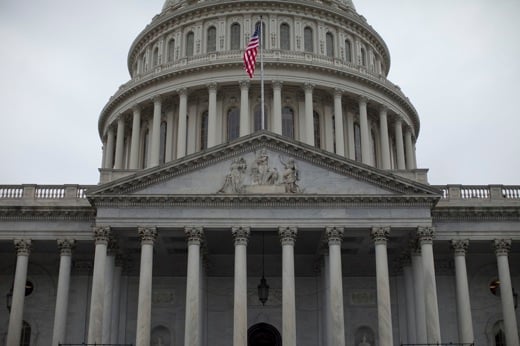Treasury yields may stay low because inflation is in check, according to
Fidelity Investments, the Boston-based fund company that oversees $1.64 trillion.
Investors who are “neutral” on U.S. debt should have about 30 percent of their bond portfolio in Treasuries, Claus te Wildt, a senior vice president and researcher at Fidelity, wrote in a report yesterday on the company's website. The recommendation contrasts with Bill Gross, who runs the world's biggest bond fund at Pacific Investment Management Co. and is betting against America's sovereign debt.
“Everybody seems to dislike U.S. Treasuries right now,” te Wildt wrote. “Interest rates could stay low for quite some time due to a lack of inflation. Treasuries should remain a core component of a diversified portfolio.”
U.S. debt posted the best returns in eight months during April, gaining 1.15 percent, according to Bank of America Merrill Lynch indexes, overcoming concern about the $1.3 trillion budget deficit and a warning from Standard & Poor's that the U.S.'s AAA credit rating is at risk. Federal Reserve Chairman Ben S. Bernanke said he's in no rush to increase interest rates, and he will keep reinvesting proceeds of maturing debt held by the central bank into bonds.
Ten-year yields were little changed at 3.16 percent as of 6:38 a.m. in London, according to Bloomberg Bond Trader prices. The 3.625 percent note maturing in February 2021 traded at 103 27/32. Rates dropped to 3.13 percent on May 6, the lowest level this year.
Pimco Holdings
Pimco's $240.7 billion Total Return Fund had minus 4 percent of its assets in government and related debt in April, the company reported on its website. The fund can have a so- called negative position by using derivatives, futures or by shorting. Shorting is borrowing and selling an asset in anticipation of making a profit by buying it back after its price has fallen.
Gross, who is based in Newport Beach, California, said in a May 6 interview that inflation will hurt bonds.
The difference between rates on 10-year notes and Treasury Inflation Protected Securities, a gauge of trader expectations for consumer prices over the life of the debt, has narrowed to 2.40 percentage points from 2.67 percentage points on April 11. Last month's figure was the highest in three years. The average over the past decade is 2.10 percentage points.
‘Don't Give Up'
Ten-year Treasuries yield 0.46 percent after stripping out inflation based on the consumer price index. The figure was 0.45 percent on May 6, the least since 2008. Based on two-year Treasuries, the real yield is minus 2.16 percent.
S&P put a “negative” outlook on the U.S.'s AAA credit rating on April 18, saying there's a one-in-three chance of a downgrade unless lawmakers agree on a plan by 2013 to reduce budget deficits and the national debt.
Bernanke said April 27 that the end of the Fed's $600 billion bond-buying program in June probably won't have a “significant” effect on financial markets or the economy, and the central bank will probably keep reinvesting maturing debt.
“Don't give up on Treasuries yet,” te Wildt wrote.
Lawrence Lau, chairman of CIC International (Hong Kong) Co., said at a briefing in Beijing today that U.S. Treasuries are a safe investment.







